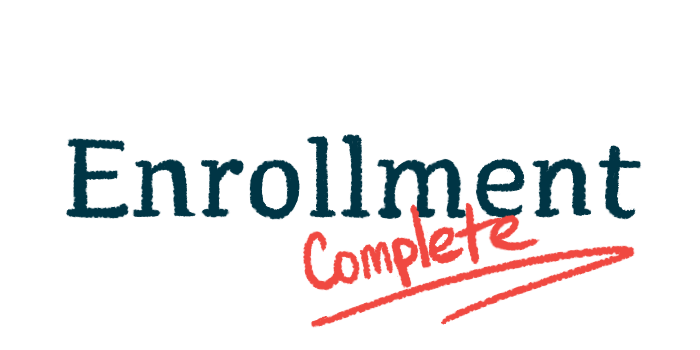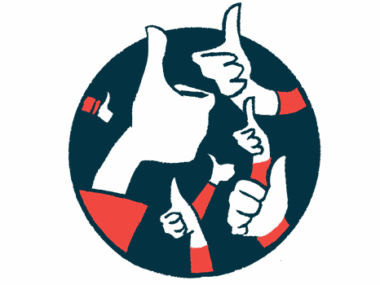Enrollment complete for Phase 2b trial testing LYT-100 in IPF patients
Top-line results expected in the fall this year, PureTech Health announces
Written by |

Enrollment has been completed for a Phase 2b trial that’s testing LYT-100 (deupirfenidone), PureTech Health’s experimental therapy for idiopathic pulmonary fibrosis (IPF).
The trial, called ELEVATE IPF (NCT05321420), is assessing the safety, efficacy, and dosing regimen of LYT-100 in 240 adults with IPF, compared with a placebo. Top-line results from the study are expected in the fall.
“LYT-100 has the potential to have a profound impact on the way IPF is managed by allowing patients to start, continue and fully benefit from treatment, both as monotherapy and in combination settings with other antifibrotic therapies,” Toby Maher, MD, PhD, professor at the Keck School of Medicine of the University of Southern California, Los Angeles, and investigator in the trial, said in a company press release.
“This milestone in the ELEVATE IPF trial is very exciting, and I look forward to the full results as a potential step forward for the large, underserved IPF patient community,” Maher said.
Pulmonary fibrosis (PF) is a disease of the respiratory system marked by scarring (fibrosis) of the lungs, leading to shortness of breath and other symptoms. In most cases, the disease is classified as being idiopathic, meaning its exact cause is unknown.
Active agent in LYT-100 is chemically modified version of pirfenidone
The active agent in LYT-100, deupirfenidone, is a chemically modified version of pirfenidone — the active agent of Esbriet, an approved antifibrotic treatment for IPF.
Both Esbriet and Ofev (nintedanib), another antifibrotic therapy that’s approved for IPF, have been shown to be able to slow the progression of lung scarring. However, both are associated with significant side effects, which can cause patients to opt out of treatment.
LYT-100 was designed to have similar efficacy, but a better tolerability profile than Esbriet, according to PureTech.
Previously reported data from a Phase 1 trial involving healthy adults demonstrated LYT-100 was well tolerated. Also, a crossover study found a 550 mg dose of LYT-100 provided bioequivalent drug exposure to Esbriet’s approved dose of 801 mg. Additionally, the proportion of participants experiencing gastrointestinal and nervous system-related adverse events was about 50% lower when they were exposed to LYT-100 than when they were given Esbriet.
When the dose of LYT-100 was increased to 824 mg in participants previously treated with the 550 mg dose, the treatment remained well tolerated. These data informed the two doses selected to be tested in the ELEVATE IPF trial.
“LYT-100 builds on the established efficacy of pirfenidone, and data generated to date suggest it may address key tolerability issues that prevent patients from starting or continuing treatment,” Maher said.
Trial to test LYT-100’s effects on lung function
Participants in the trial will be randomly assigned to receive LYT-100 (550 or 825 mg), Esbriet (801 mg), or a placebo, three times a day, for up to 26 weeks (about six months).
The trial’s main goal is to assess the treatment’s effects on forced vital capacity, a common lung function measure that indicates how much air an individual can forcibly exhale after a deep breath, compared with a placebo. The effects of treatment on tolerability measures, inflammatory biomarkers, and patient-reported outcomes will also be assessed.
After completing the trial, patients may enter a long-term study extension, where those initially treated with Esbriet or a placebo will be re-randomized to receive either 550 mg or 825 mg of the experimental treatment. Patients initially assigned to receive LYT-100 will continue receiving the same dose of the therapy in the extension study.
PureTech believes the results of the Phase 2b trial, together with an additional Phase 3 trial, could serve as the basis for an application seeking the regulatory approval of LYT-100 in the U.S. and other countries.





